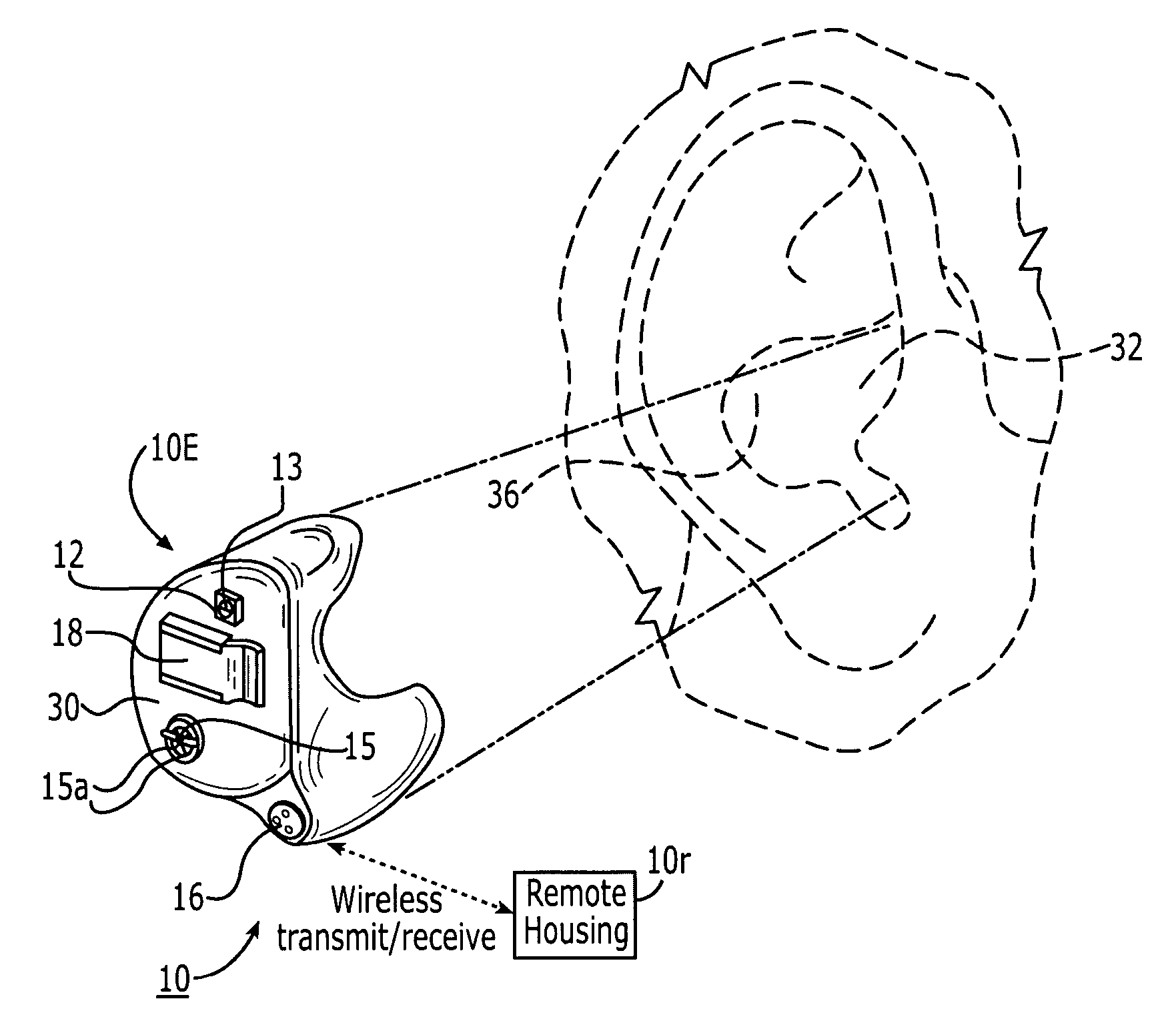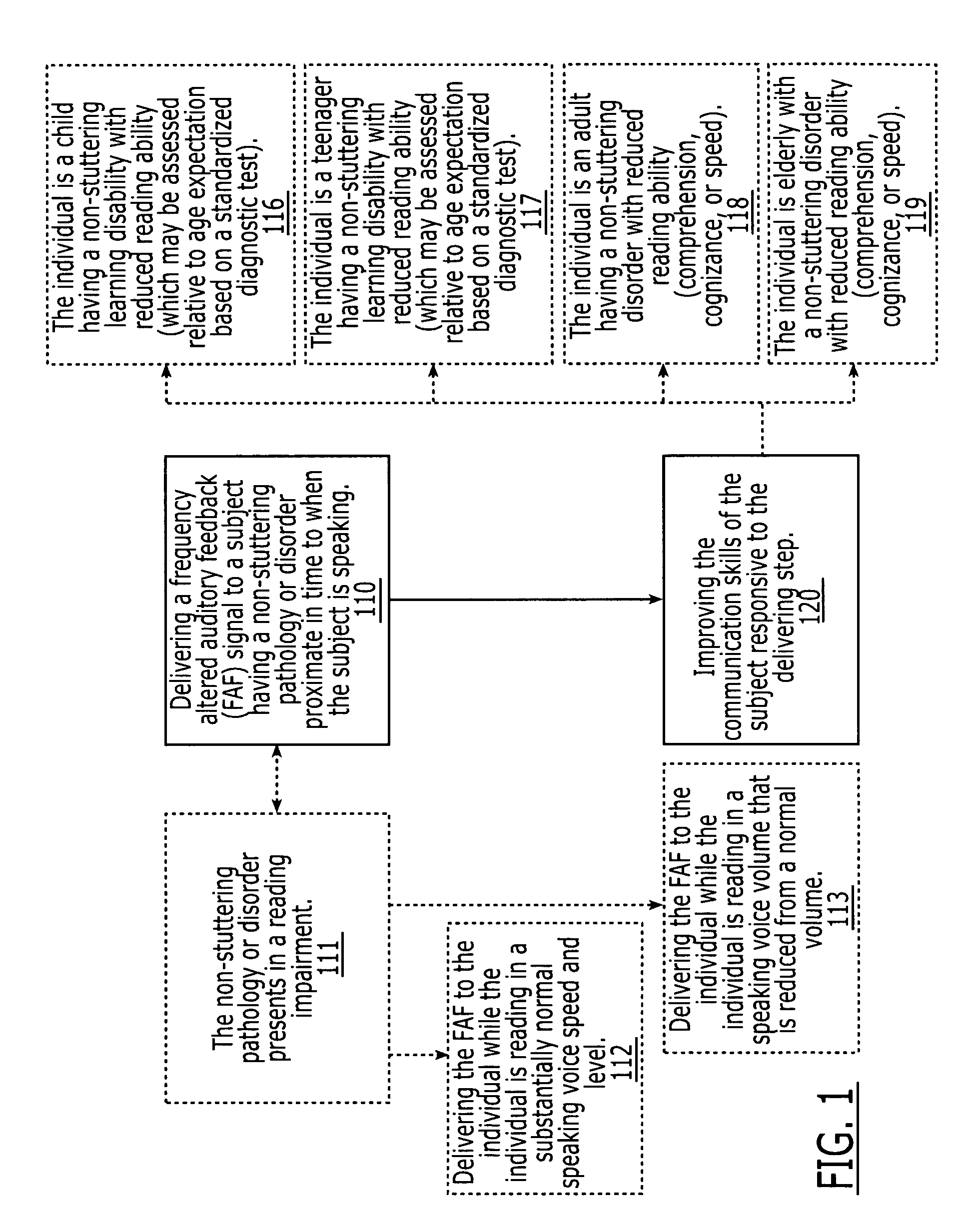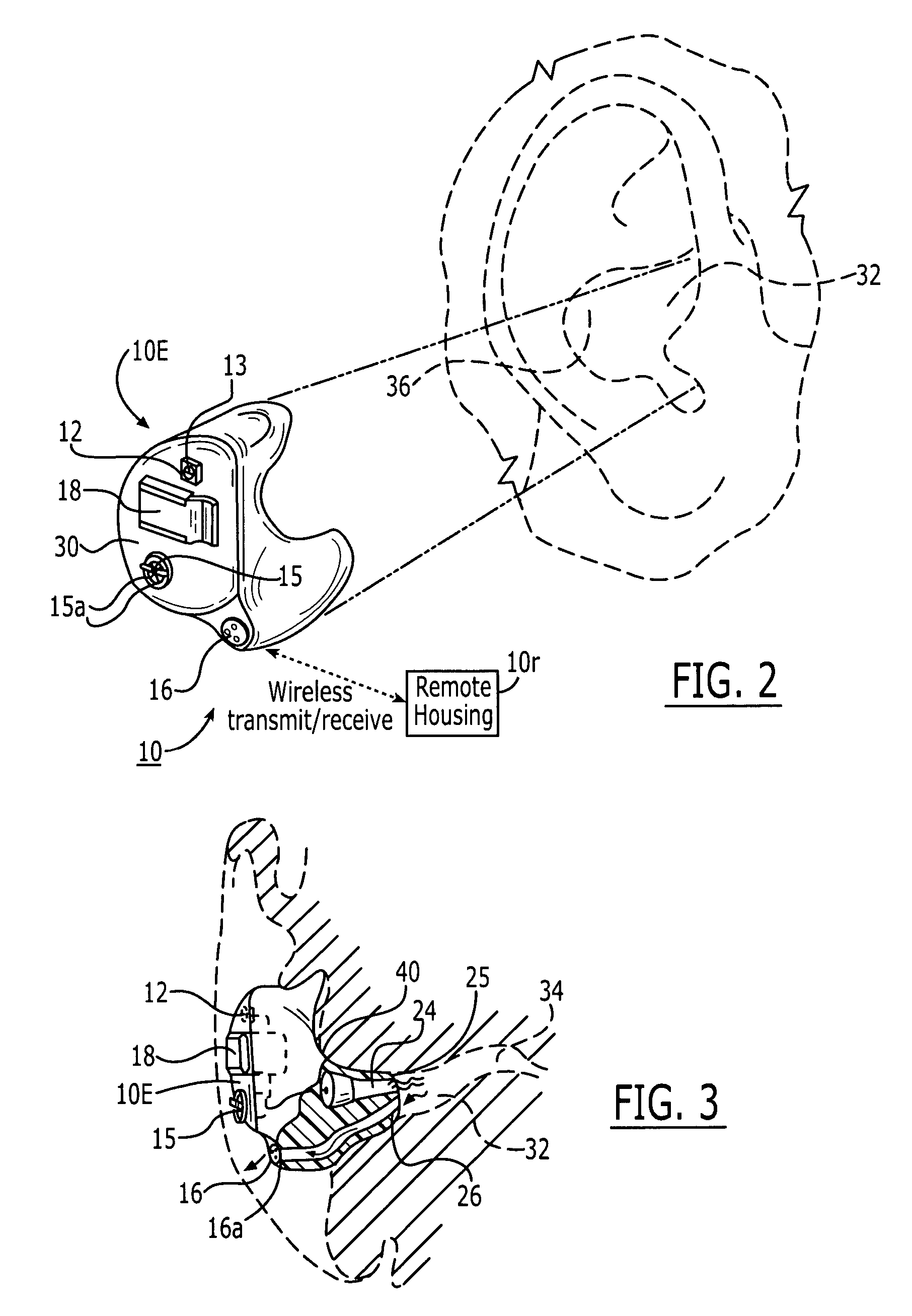Frequency altered feedback for treating non-stuttering pathologies
a feedback and frequency technology, applied in the field of non-stuttering disorders, can solve the problems of dd subjects' performance deterioration, resource depletion or frontal lobe dysfunction, and disruptive effect on disabled readers with intact auditory functioning
- Summary
- Abstract
- Description
- Claims
- Application Information
AI Technical Summary
Benefits of technology
Problems solved by technology
Method used
Image
Examples
examples
Participants
[0101]The participants were 27 students, 15 normal reading sixth grade students and 12 sixth grade students diagnosed by their school as being reading delayed, attending local eastern North Carolina middle schools. The participants' overall reading ability score on the Woodcock Johnson Reading Mastery Test-Revised (WRMT-R) determined reading ability. Normal reading ability was defined as an age appropriate score. Delayed reading ability was defined as one or two years delayed relative to the age appropriate score. All participants had normal bilateral hearing sensitivity as determined by a screening protocol as well as normal or corrected vision as reported by their parents or school personnel. Passing scores for language screening (Clinical Evaluation of Language Functions-3) and average scores for receptive one-word picture vocabulary (Peabody Picture Vocabulary Test-III) were also required for participation.
Materials and Instrumentation
[0102]Research testing was condu...
PUM
 Login to View More
Login to View More Abstract
Description
Claims
Application Information
 Login to View More
Login to View More - R&D
- Intellectual Property
- Life Sciences
- Materials
- Tech Scout
- Unparalleled Data Quality
- Higher Quality Content
- 60% Fewer Hallucinations
Browse by: Latest US Patents, China's latest patents, Technical Efficacy Thesaurus, Application Domain, Technology Topic, Popular Technical Reports.
© 2025 PatSnap. All rights reserved.Legal|Privacy policy|Modern Slavery Act Transparency Statement|Sitemap|About US| Contact US: help@patsnap.com



